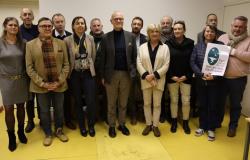The fires of summer 2022 have left their mark on people’s minds and put to the test the women and men who, every day, take risks for everyone’s safety. The unfailing commitment of the firefighters, whether professional or volunteer, is to be commended. These everyday heroes, as during crises like the fires in the Monts d’Arrée or during storm Ciaran, deserve our recognition and, above all, resources commensurate with their mission. The question of financing a water bomber in Finistère (Morane 29) may have been the subject of regrettable political controversies. The Finistère and Solidaires group has maintained a consistent position since 2022. A position favorable to aerial means of fighting fires in Brittany but not to any financing conditions. Indeed, it is fundamental that the financing of this strategic tool rests entirely on the State and not on local authorities. This is a question of consistency in the SDIS financing model, and, above all, a major point of attention to ensure that the State does not disengage further in the future. Currently, the financing of SDIS relies on municipalities and intermunicipalities as well as on departments for operation, and on the same financiers with the State for investment. However, while the 2025 Finance Bill announces new cuts for local authorities, how can we envisage, at the same time, that communities will fill in the State’s shortcomings? This discrepancy is striking: on the one hand, we demand efforts from communities, and on the other, we request them to support government civil security missions. These investments must come more from national funding. Communities are depleted of funding, yet SDIS expenses require finding new ones as recourse to the essential missions of firefighters is intensifying and will intensify again tomorrow in view of climate risks and medical deserts. The recent tragedies in Spain are yet another illustration of this.
“This political and financial retreat by the State will have consequences, and if a political responsibility must be questioned, it is that of those who accept this disengagement today for tomorrow. »
An in-depth discussion must be carried out to temporarily stop increases in funding by municipalities, and provide the Departments with new revenue to further finance SDIS while strengthening State support for investment. For example, a greater distribution key for insurance taxes collected nationally towards the Departmental Councils would be possible so that they can contribute more to the budgets of the SDIS, or the creation of an intervention fund for the SDIS supplemented by insurance taxes.
The risk of a state moving backwards is real. Co-financing a water bomber for two months in Finistère with the State by the Department means accepting that a sustainable and regular investment via capacity pacts and a real national civil security plan will probably never happen in Brittany.
In the Senate, discussions have already warned: if the Departments today co-finance air civil security resources, the State risks downloading onto the SDIS by reducing its investment in national resources. This political and financial retreat by the State will have consequences, and if a political responsibility must be questioned, it is that of those who accept this disengagement today for tomorrow. Finally, a question arises: are the 200,000 euros annually allocated by the Department for the Morane 29 bomber really being put to best use? Rather than remedying the lack of investment by the State in aerial means of fighting fires on our territory, would these funds not be more useful to support firefighters in their continuing training course or by improving their upgrading? salary? Furthermore, would it not be preferable to anticipate the possible financing of waiting days that the government wants to extend?
If the political position of Finistère and Solidaires on the financing of Morane 29 must be exploited politically, then it is to recall that the fight being waged aims to secure lasting resources for the SDIS and allow the firefighters to have an SDIS capable of project sustainably and with suitable equipment.
Swiss

![[Tribune] Firefighting: for better state investment](https://euro.dayfr.com/temp/resized/medium_2024-12-11-ed72cc7450.jpg)




